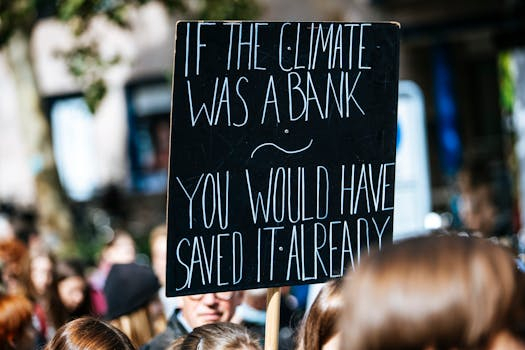The Impact of Climate Change on Global Food Systems
Climate change is one of the most pressing issues facing our planet today. With rising global temperatures, extreme weather events, and changes in precipitation, the impact of climate change is being felt in all aspects of our lives. One area that has been significantly affected by climate change is our global food systems. As the Earth’s climate continues to change, the way we produce, distribute, and consume our food is being drastically altered. In this article, we will explore the impact of climate change on global food systems, including the challenges it presents and potential solutions for building a more resilient future.
The Threat to Crop Production
The most direct impact of climate change on global food systems can be seen in the threat to crop production. As temperatures rise and weather patterns become more unpredictable, farmers are facing new challenges in growing and harvesting their crops. Droughts, floods, heatwaves, and other extreme weather events are becoming more frequent, making it difficult for farmers to plan and manage their crops effectively.
In some regions, climate change is leading to longer growing seasons, allowing for multiple harvests. However, in many other areas, changing weather patterns are making it difficult for farmers to produce an optimal crop. This is particularly true in developing countries, where many farmers rely on rainfed agriculture and do not have access to irrigation or other technologies to adapt to changing conditions. As a result, there is a growing concern that food production will not be able to keep pace with the demands of a growing global population.
The Impact on Food Supply and Prices
The impact of climate change on crop production has far-reaching implications for the global food supply and prices. As crop yields decrease due to extreme weather events and changing growing conditions, there is less food available to meet the growing demand. This can lead to food shortages and price increases, particularly in developing countries that are more vulnerable to the effects of climate change.
In addition, extreme weather events can also damage existing food supplies and disrupt transportation and distribution networks. Hurricane Maria, for example, devastated Puerto Rico in 2017 and caused significant damage to the island’s agriculture, leading to shortages of fruits and vegetables and increased prices for many staple foods.
Challenges for Small-Scale Farmers
Small-scale farmers, who make up a significant portion of the world’s food producers, are particularly vulnerable to the impacts of climate change. These farmers often lack the resources and technology to adapt to changing weather patterns and are more likely to be affected by crop failures and price fluctuations. Climate change also exacerbates existing inequalities, as small-scale farmers in developing countries are already facing numerous challenges such as poverty, lack of access to credit, and limited land tenure rights.
The Need for Adaptation and Resilience
One of the key solutions for mitigating the impact of climate change on global food systems is building resilience and promoting adaptation. This includes investing in technologies and practices that can help farmers cope with changing weather patterns and reduce their vulnerability to the effects of climate change. For example, the use of drought-resistant crops, improved irrigation systems, and sustainable agricultural practices can all help to improve the resilience of food production systems.
In addition, there is a growing need for international cooperation and support to help small-scale farmers in developing countries adapt to the impacts of climate change. This could include providing funding for research and development of climate-resilient crops, and supporting policies and programs that promote sustainable agriculture and food security.
The Role of Consumers
As consumers, our food choices also play a crucial role in addressing the impact of climate change on global food systems. Eating a more plant-based diet, reducing food waste, and supporting sustainable and local food systems can all help to reduce the carbon footprint of our food and promote a more sustainable and resilient food system.
The Need for Systemic Change
In addition to individual actions, there is a growing recognition that systemic change is needed to address the root causes of climate change and its impacts on global food systems. This includes reducing greenhouse gas emissions, promoting sustainable land management, and shifting to more sustainable and resilient food production models.
While the impact of climate change on global food systems is a daunting challenge, it also presents an opportunity for us to rethink our current food production and consumption practices. By working together and taking decisive action, we can build a more resilient and sustainable food system that can withstand the challenges of a changing climate and provide for generations to come.
Conclusion
In conclusion, the impact of climate change on global food systems is a complex and multifaceted issue that requires urgent attention. By understanding the challenges we face and taking decisive action, we can work towards building a more resilient and sustainable food system that can withstand the effects of climate change. As consumers and global citizens, it is our responsibility to take action now and support the necessary changes to ensure that our food systems can continue to thrive in the face of a changing climate.










